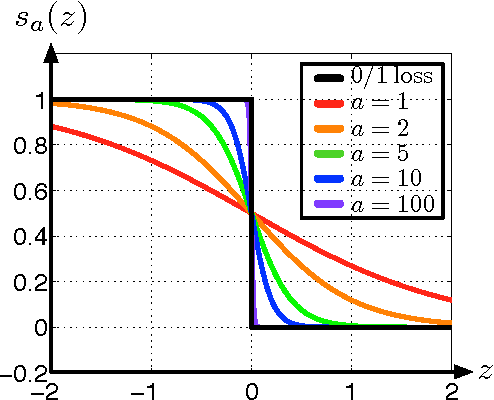Distance Metric Learning for Kernel Machines
Paper and Code
Jan 08, 2013



Recent work in metric learning has significantly improved the state-of-the-art in k-nearest neighbor classification. Support vector machines (SVM), particularly with RBF kernels, are amongst the most popular classification algorithms that uses distance metrics to compare examples. This paper provides an empirical analysis of the efficacy of three of the most popular Mahalanobis metric learning algorithms as pre-processing for SVM training. We show that none of these algorithms generate metrics that lead to particularly satisfying improvements for SVM-RBF classification. As a remedy we introduce support vector metric learning (SVML), a novel algorithm that seamlessly combines the learning of a Mahalanobis metric with the training of the RBF-SVM parameters. We demonstrate the capabilities of SVML on nine benchmark data sets of varying sizes and difficulties. In our study, SVML outperforms all alternative state-of-the-art metric learning algorithms in terms of accuracy and establishes itself as a serious alternative to the standard Euclidean metric with model selection by cross validation.
 Add to Chrome
Add to Chrome Add to Firefox
Add to Firefox Add to Edge
Add to Edge